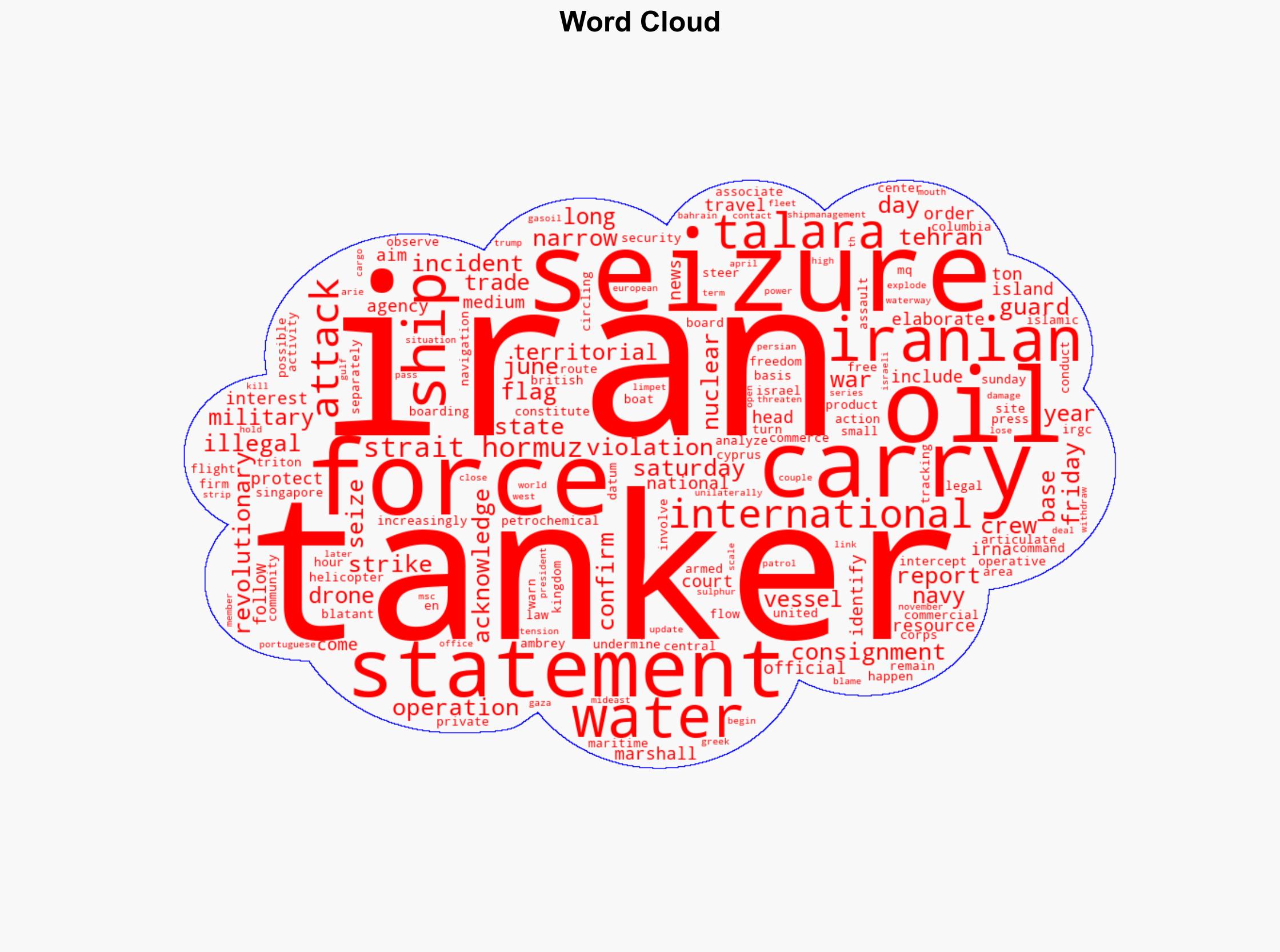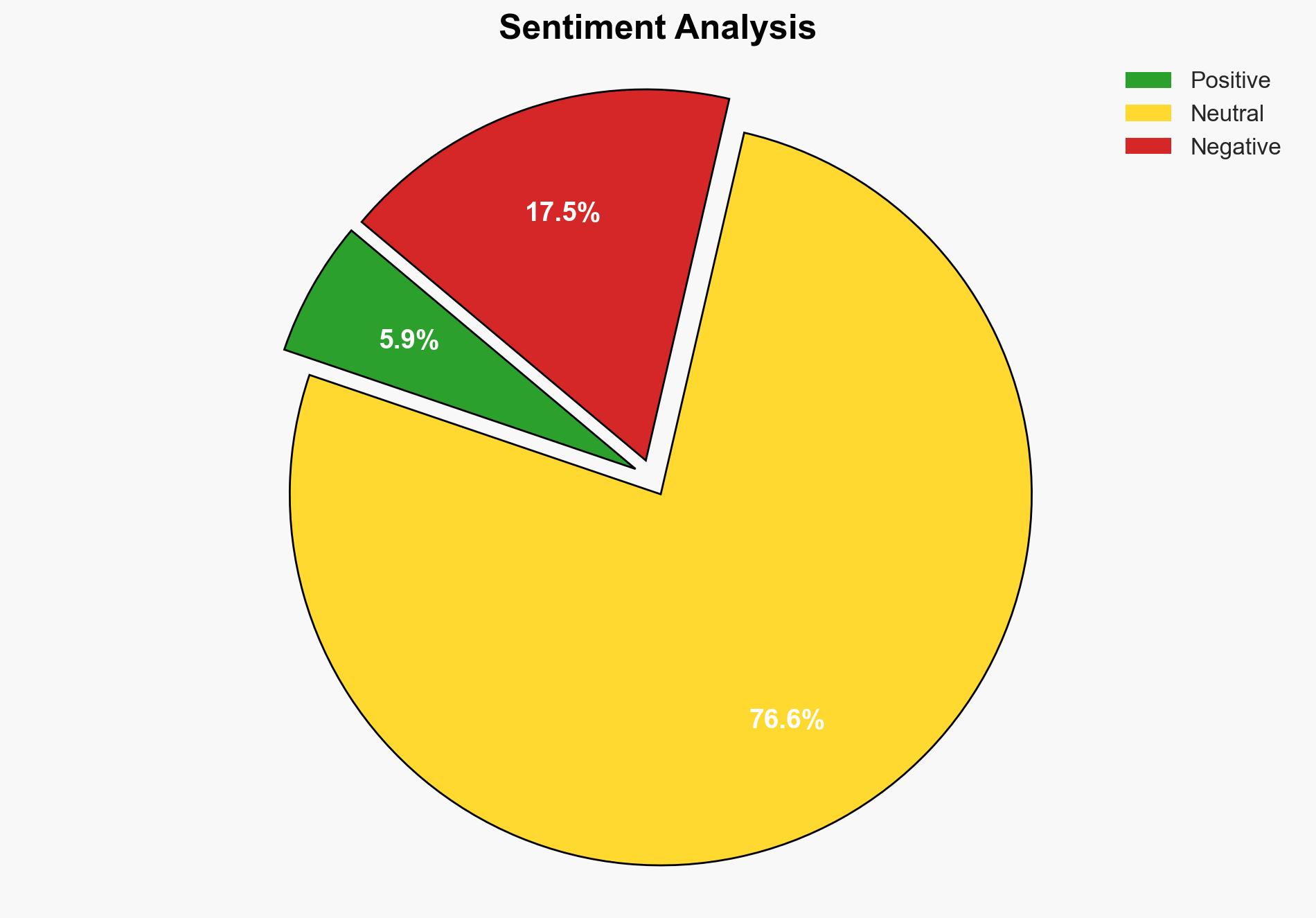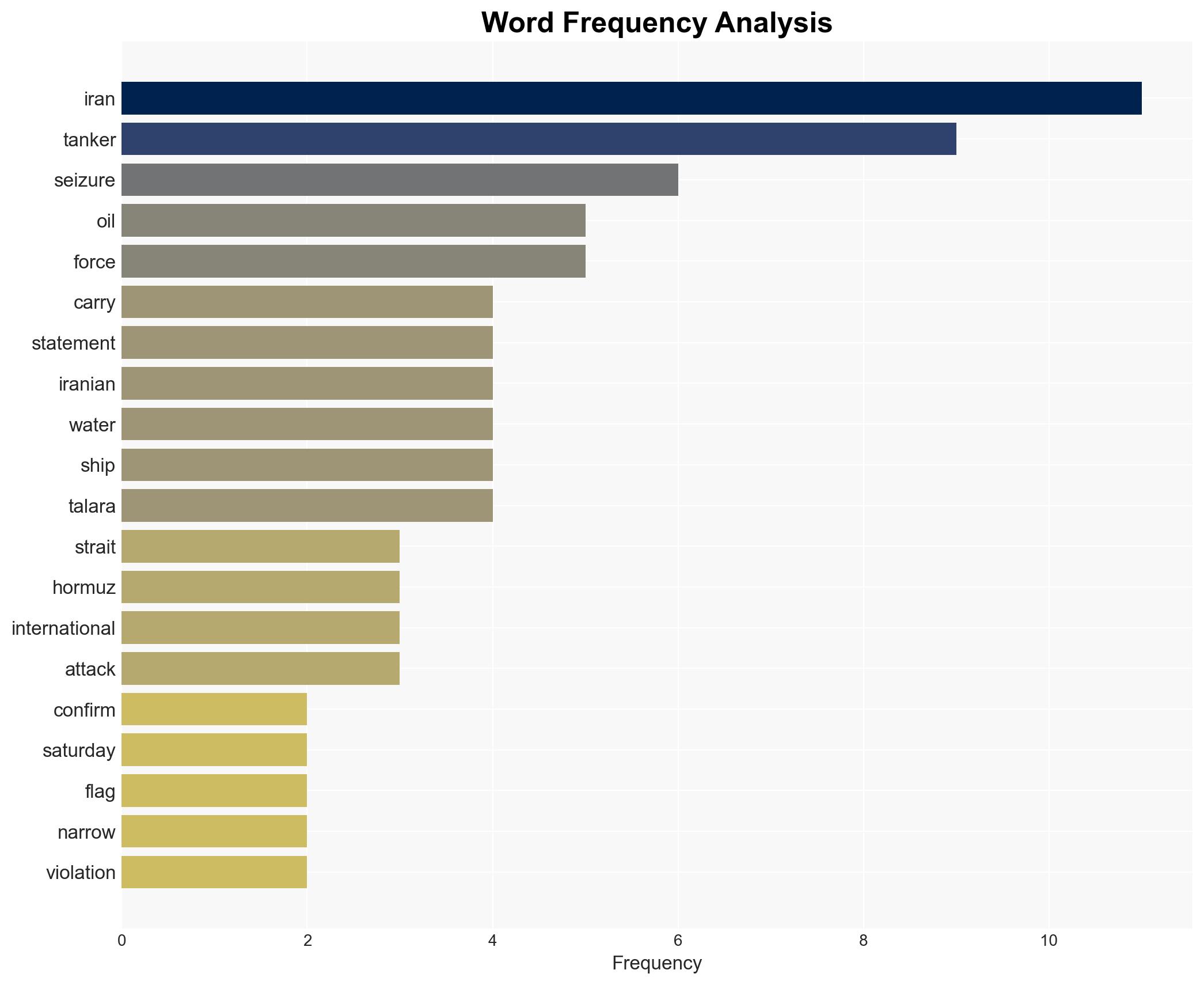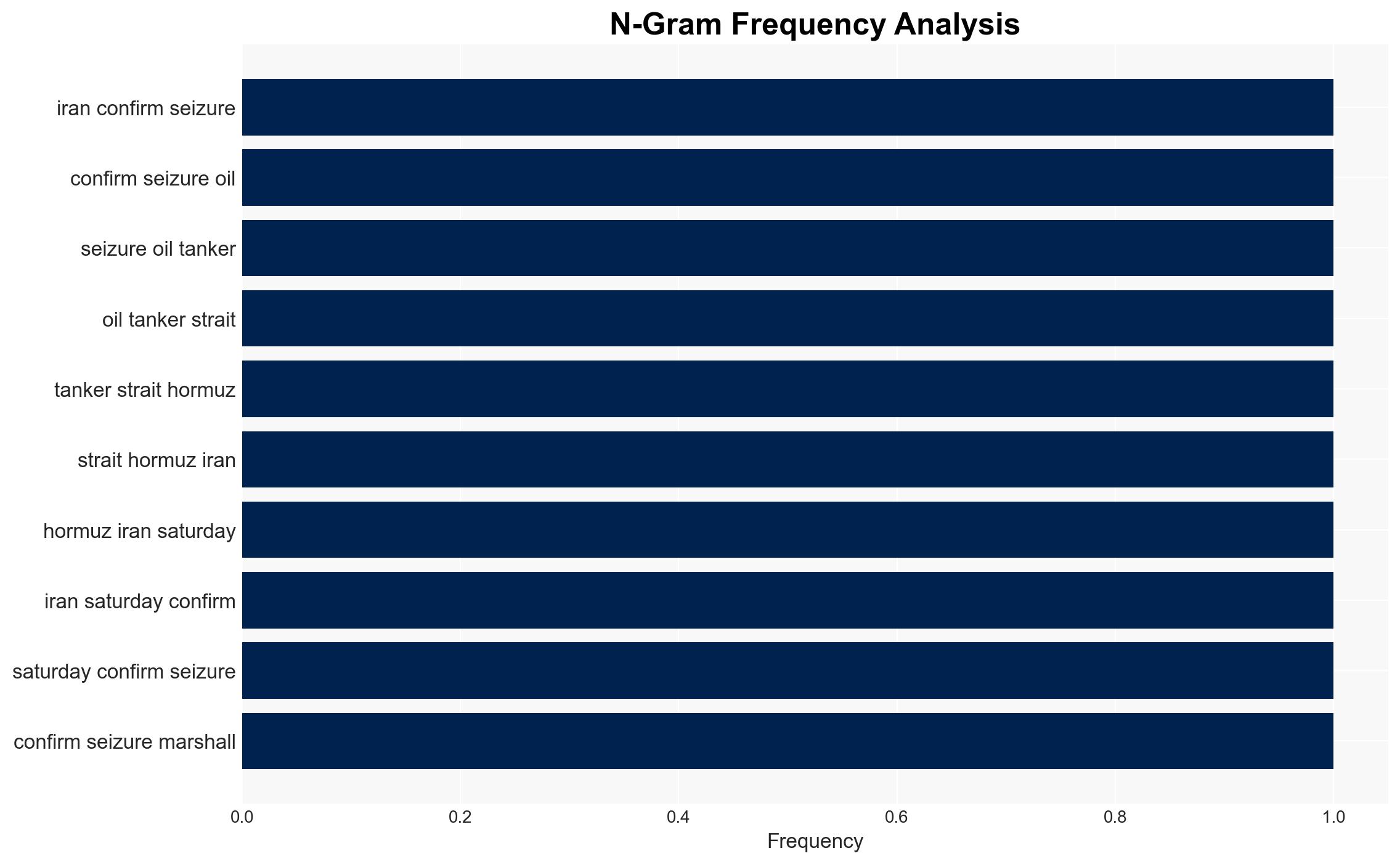Iran confirms seizure of oil tanker in the Strait of Hormuz – CBS News
Published on: 2025-11-15
AI-powered OSINT brief from verified open sources. Automated NLP signal extraction with human verification. See our Methodology and Why WorldWideWatchers.
Intelligence Report: Seizure of Oil Tanker by Iran in the Strait of Hormuz
1. BLUF (Bottom Line Up Front)
The most supported hypothesis is that Iran’s seizure of the oil tanker is a strategic maneuver to assert control over the Strait of Hormuz and respond to perceived threats from Israel and Western powers. Confidence level: Moderate. Recommended action: Increase diplomatic engagement with regional allies to de-escalate tensions and ensure freedom of navigation.
2. Competing Hypotheses
Hypothesis 1: Iran seized the tanker as a direct response to perceived military threats from Israel and the West, aiming to demonstrate its capability and willingness to disrupt maritime traffic in the Strait of Hormuz.
Hypothesis 2: The seizure is primarily a legal enforcement action by Iran, targeting the tanker for carrying an illegal consignment, as claimed by Iranian authorities.
Hypothesis 1 is more likely given the geopolitical context, recent threats from Iran regarding the Strait of Hormuz, and historical patterns of using such actions to leverage international negotiations.
3. Key Assumptions and Red Flags
Assumptions include Iran’s intent to leverage the seizure for strategic gain and the validity of the claim regarding the illegal consignment. Red flags involve potential misinformation from Iranian sources and the lack of independent verification of the consignment’s legality. Deception indicators include Iran’s historical use of maritime seizures to project power and influence.
4. Implications and Strategic Risks
The seizure could escalate regional tensions, potentially leading to military confrontations or further economic sanctions. It may also embolden Iran to conduct similar actions, risking the security of global oil supply routes. Cyber and informational threats could emerge as Iran seeks to control the narrative and counter Western responses.
5. Recommendations and Outlook
- Engage in diplomatic talks with Iran to clarify intentions and seek a peaceful resolution.
- Enhance naval presence in the region to ensure freedom of navigation and deter further seizures.
- Coordinate with international partners to apply pressure on Iran through diplomatic and economic channels.
- Best scenario: Diplomatic resolution leading to the release of the tanker and de-escalation of tensions.
- Worst scenario: Military confrontation in the Strait of Hormuz, disrupting global oil supplies.
- Most-likely scenario: Continued tension with sporadic incidents, requiring ongoing international diplomatic efforts.
6. Key Individuals and Entities
Islamic Revolutionary Guard Corps (IRGC), Columbia Shipmanagement, Ambrey (private security firm).
7. Thematic Tags
Regional Focus, Regional Focus: Middle East, Maritime Security, Iran, Strait of Hormuz
Structured Analytic Techniques Applied
- Causal Layered Analysis (CLA): Analyze events across surface happenings, systems, worldviews, and myths.
- Cross-Impact Simulation: Model ripple effects across neighboring states, conflicts, or economic dependencies.
- Scenario Generation: Explore divergent futures under varying assumptions to identify plausible paths.
Explore more:
Regional Focus Briefs ·
Daily Summary ·
Support us
·





